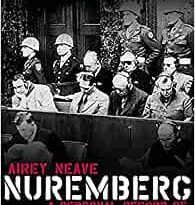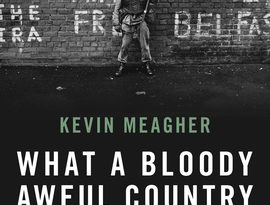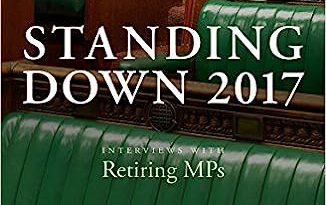BOOK REVIEW : Callaghan – The Road to Number Ten by Peter Kellner and Christopher Hitchens
This book was published in 1976 by Cassell of London, following the appointment of James Callaghan as the Prime Minister after Harold Wilson stepped down from his second spell in the role. The authors need little introduction, Peter Kellner is a polling expert and long-time journalist, whilst Hitchens became one of the best known and respected British journalists in the United States, speaking frequently on religious, cultural and political matters, rarely being afraid of controversy.
Over the last half century there have been a few leaders who took over from a long-serving Prime Minister with relatively little time before the next General Election, including Gordon Brown, John Major and James Callaghan. Major was able to win his own mandate, but Brown and Callaghan were less successful, with Rishi Sunak facing the same challenges in current politics. Harold Wilson has resigned on 16 March 1976, not entirely a surprise to Callaghan who was serving as Foreign Secretary, as he had already been told by the Prime Minister that he would be stepping down in the short-term. But the date was a surprise and there is still debate on why Wilson retired whilst still relatively young, having just reached sixty. Although the book starts covering this period, it then returns to the birth of Callaghan in 1912 and examines how and why he reached the position of Prime Minister.
It was a complex family history given that his mother was Protestant and his father Catholic, which presented Callaghan with a challenge in the late 1960s when he was the Home Secretary dealing with the growing turbulence in Northern Ireland with the Troubles. Callaghan lost his 41-year old father when he was aged just nine, a tragedy for any child, but this also a financial problem for his mother as although she received a small payout, there was no widow’s pension to help her. Callaghan related later on that his mother voted Labour because they were offering a pension, which hadn’t been offered during the Conservative’s period in government.
Callaghan didn’t go to university because his mother wanted him to settle down and secure a well-paid job where he wouldn’t struggle for money, although the authors of the book aren’t clear that he would have succeeded into getting into university anyway. He quite sensibly took a job working for the Inland Revenue and as the authors note, “the job protected him from the slump that was about to hit Britain”. Callaghan worked hard and also became heavily involved with union matters, working tirelessly on them and become engaged with the trade union movement and its meetings.
Callaghan’s job was a reserved occupation and so he didn’t have to take part directly in the Second World War, but he chose to in any event, picking the Royal Navy and receiving his call up in late 1943. He continued his politics, not winning the nomination to become the Labour candidate for Reading, but instead winning the selection for Cardiff South, a constituency he won at the 1945 General Election. One of the limitations of this book is that there is relatively little commentary from the authors from this period of his life, which would likely be useful and informative, and it reads as more of a formal biography. However, this is likely down to how the writing of the book came about, which was to extend a long article that the authors had written for the Sunday Times.
The authors did though note that by the 1951 General Election Callaghan had shifted away from the previous left-wing views that he held within the party. The authors write “his attitudes and move to the right had little to do with deeply held ideological convictions. They are the arguments of a practical man, firmly anchored to a keen sense of what will keep the show on the road, they are the arguments of a man who reduces political ideas to issues of tactics”.
The then Labour leader Gaitskell gave Callaghan a substantial promotion in November 1961, when he was made the shadow Chancellor of the Exchequer. However, the book notes that “according to close friends of Gaitskell, he wanted Callaghan to be shadow Chancellor because of his debating skills, not to be an actual Chancellor in a Labour Government, because Callaghan knew too little of economics”. If nothing else, the promotion was evidence of the political skills which Callaghan possessed and the importance which Gaitskell placed upon that. History may well have been very different if Gaitskell hadn’t died suddenly in 1963, as it was likely that he would have become Prime Minister. Callaghan sought to become the party leader, although this was never likely at that time and he was the first to be eliminated in the three man leadership race, which was ultimately won by Harold Wilson.
Callaghan continued to be the shadow Chancellor under Wilson’s leadership, with the authors of this book commenting positively on this period, that “he was a political heavyweight”. They added that “he had established his authority as shadow Chancellor, he was a formidable adversary for Maudling in the Commons and the media were taking him seriously”. Gaitskell might not have wanted him to be the actual Chancellor in a Labour Government, but that’s what he became in 1964.
Much of Callaghan’s legacy in the Treasury is considered from the prism of the devaluation which so undermined the Labour Government, even though they inherited a poor economic situation from the Conservatives. The authors of the book were balanced, noting that “he had partial success concerning tax reform, but corporation tax, capital gains tax and betting tax have worked well and survived”. They add that “Callaghan’s actions to secure international monetary reform must count as an important achievement”, a job done well enough to ensure that he was given a different senior Cabinet position, this time Home Secretary in 1967.
Callaghan proved to be a very different Home Secretary to his predecessor Roy Jenkins, who the authors note took great care in making decisions and considered matters in depth. They comment that “his very first red box occupied him for just 45 minutes, causing one stunned official to note that he had just done three weeks’ work”. His time in the role is summarised by the authors as “having started as an unhappy and defeated ex-Chancellor, Callaghan finished his stewardship of the Home Office as a confident and restored man”.
The book is well written, although that isn’t much of a surprise given the talent and ability of the two authors who put it together. They are willing to praise Callaghan, but note in the conclusions of the book that “his record in office contains more failures than triumphs”. They were also sceptical about the future, writing that “our view is not hopeful, as we write the responses of the Government to Britain’s economic problems, and the pressures from abroad on sterling, are uncomfortably reminiscent of the spineless strategy of the last Labour Government ten years ago”.
This book is a useful introduction to what the future looked like in 1976 for Callaghan, given what was known about him from his time in Parliament and in leading Cabinet roles. The authors were notably pessimistic and that was perhaps the correct view to be taken given that Labour ultimately lost office in 1979 and didn’t regain it until 1997. The book is also testament to how far a politician can go in politics by being a strong team-player, by remaining close to fellow MPs and having a deep understanding of the party machine.



